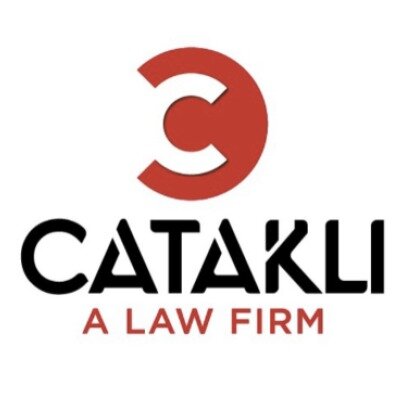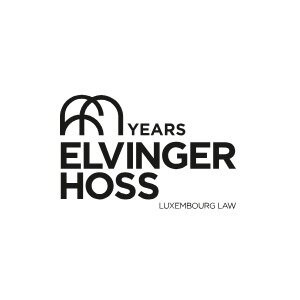Best Public-Private Partnerships (PPP) Lawyers in Luxembourg
Share your needs with us, get contacted by law firms.
Free. Takes 2 min.
Or refine your search by selecting a city:
List of the best lawyers in Luxembourg
About Public-Private Partnerships (PPP) Law in Luxembourg
Public-Private Partnerships (PPP) are contractual agreements that combine resources and expertise from both the public and private sectors to deliver infrastructure projects or services. In Luxembourg, PPPs are increasingly used to finance, construct, operate, or maintain public assets such as schools, hospitals, and transportation networks. While there is no standalone PPP law in Luxembourg, such arrangements are governed by a mixture of public procurement, concession, and contract laws. The PPP framework provides flexibility in project delivery, encourages innovation, and aims to optimize value for money while protecting public interests.
Why You May Need a Lawyer
Engaging in a Public-Private Partnership in Luxembourg involves navigating complex legal, financial, and regulatory requirements. Common situations where you may need legal advice include:
- Drafting, negotiating, or reviewing PPP contracts
- Understanding and complying with public procurement procedures
- Managing risks and liabilities associated with long-term infrastructure projects
- Resolving disputes between public authorities and private partners
- Structuring project finance and securing funding
- Ensuring compliance with EU directives impacting PPPs
- Navigating administrative authorizations and permits
- Advising on tax implications of PPP structures
Due to the multifaceted nature of PPPs, having a lawyer with expertise in this field can safeguard your interests and help ensure the success of your project.
Local Laws Overview
PPP projects in Luxembourg are primarily shaped by the following legal frameworks:
- Public Procurement Law: Luxembourg transposes EU public procurement directives into its national law, setting out rules for tender procedures, transparency, and equal treatment.
- Concessions Law: The law regulates the awarding of service and works concessions, often used in PPP arrangements for public service projects.
- Civil Law and Contract Law: These laws provide the basis for drafting and enforcing PPP contracts between the public and private sectors.
- Administrative Law: Governs the actions of public authorities and any administrative authorizations required for project implementation.
- Competition and State Aid Law: Ensures PPPs do not distort market competition or involve unlawful state aid, in line with EU rules.
- Sector-Specific Legislation: Additional laws may apply to projects in sectors such as energy, transport, and health.
Luxembourg does not currently have a dedicated PPP law or central PPP unit, so each project relies on the legal documents drafted and the regulatory context at the time.
Frequently Asked Questions
What is a Public-Private Partnership (PPP) in Luxembourg?
A PPP in Luxembourg is a structured collaboration between a public authority and a private entity to finance, design, build, operate, or maintain infrastructure or public services, typically using a contract that allocates responsibilities and risks between the parties.
Are there specific laws that govern PPPs in Luxembourg?
There is no dedicated PPP law in Luxembourg. PPP arrangements are based on existing public procurement, concession, administrative, and contract laws, as well as relevant EU directives.
How are PPP contracts awarded?
PPP contracts are usually awarded through open, competitive public procurement processes in line with Luxembourg and EU public procurement regulations to ensure transparency and fairness.
What types of projects are delivered through PPPs in Luxembourg?
Typical PPP projects in Luxembourg include infrastructure developments such as transport networks, public buildings, energy facilities, and digital infrastructure.
What risks are commonly associated with PPPs?
Risks in PPPs can include construction delays, cost overruns, demand uncertainties, regulatory changes, and operational risks. Contracts are structured to allocate these risks between the parties based on expertise and capacity to manage them.
Can foreign companies participate in Luxembourg PPPs?
Yes, Luxembourg's procurement laws and adherence to EU directives allow foreign entities to participate in PPP tenders, provided they meet eligibility criteria.
How is a typical PPP financed?
PPP projects are often funded through a combination of private investment, public funds, and sometimes EU grants or subsidies. Financial models vary based on the project's scale, sector, and risk structure.
What happens if there is a dispute in a PPP?
Dispute resolution mechanisms are defined in the PPP contract and may involve negotiation, mediation, arbitration, or litigation depending on the agreed process.
Is government approval required for all PPPs?
Most PPP projects require approval from relevant government bodies or regulatory authorities, especially where public funds or assets are involved or where the project affects public interests.
How long does it take to set up a PPP in Luxembourg?
The timeframe varies based on the project's complexity, procurement procedure, and regulatory requirements, but setting up a PPP can take several months to a few years, from initial planning to contract signature and implementation.
Additional Resources
For more information about PPPs in Luxembourg, these organizations and governmental bodies can provide guidance and support:
- Ministry of Mobility and Public Works
- Ministry of Finance
- Public Procurement Regulatory Authority (Autorité luxembourgeoise de la concurrence)
- Luxembourg Chamber of Commerce
- European PPP Expertise Centre (EPEC)
- Luxembourg Bar Association (for legal practitioner contacts)
These bodies offer information on upcoming projects, regulatory guidance, and contacts for professional advisers including lawyers experienced in PPP matters.
Next Steps
If you are considering involvement in a PPP project in Luxembourg or require legal advice:
- Start by clearly identifying the type and scope of the project you are interested in
- Gather all relevant project documents and details
- Contact a lawyer or law firm with demonstrated experience in Luxembourg PPP and public procurement matters
- Consult with public bodies or industry experts if you need background information or project data
- Review the applicable procurement rules and sector-specific regulations
- Arrange an initial consultation with your legal adviser to discuss your objectives, concerns, and next steps
Engaging experienced legal counsel early can help you navigate the complexities of PPPs and increase the chances for a successful partnership. Always ensure your legal adviser understands both the local laws and the broader European legal context for PPPs.
Lawzana helps you find the best lawyers and law firms in Luxembourg through a curated and pre-screened list of qualified legal professionals. Our platform offers rankings and detailed profiles of attorneys and law firms, allowing you to compare based on practice areas, including Public-Private Partnerships (PPP), experience, and client feedback.
Each profile includes a description of the firm's areas of practice, client reviews, team members and partners, year of establishment, spoken languages, office locations, contact information, social media presence, and any published articles or resources. Most firms on our platform speak English and are experienced in both local and international legal matters.
Get a quote from top-rated law firms in Luxembourg — quickly, securely, and without unnecessary hassle.
Disclaimer:
The information provided on this page is for general informational purposes only and does not constitute legal advice. While we strive to ensure the accuracy and relevance of the content, legal information may change over time, and interpretations of the law can vary. You should always consult with a qualified legal professional for advice specific to your situation.
We disclaim all liability for actions taken or not taken based on the content of this page. If you believe any information is incorrect or outdated, please contact us, and we will review and update it where appropriate.
Browse public-private partnerships (ppp) law firms by city in Luxembourg
Refine your search by selecting a city.
















